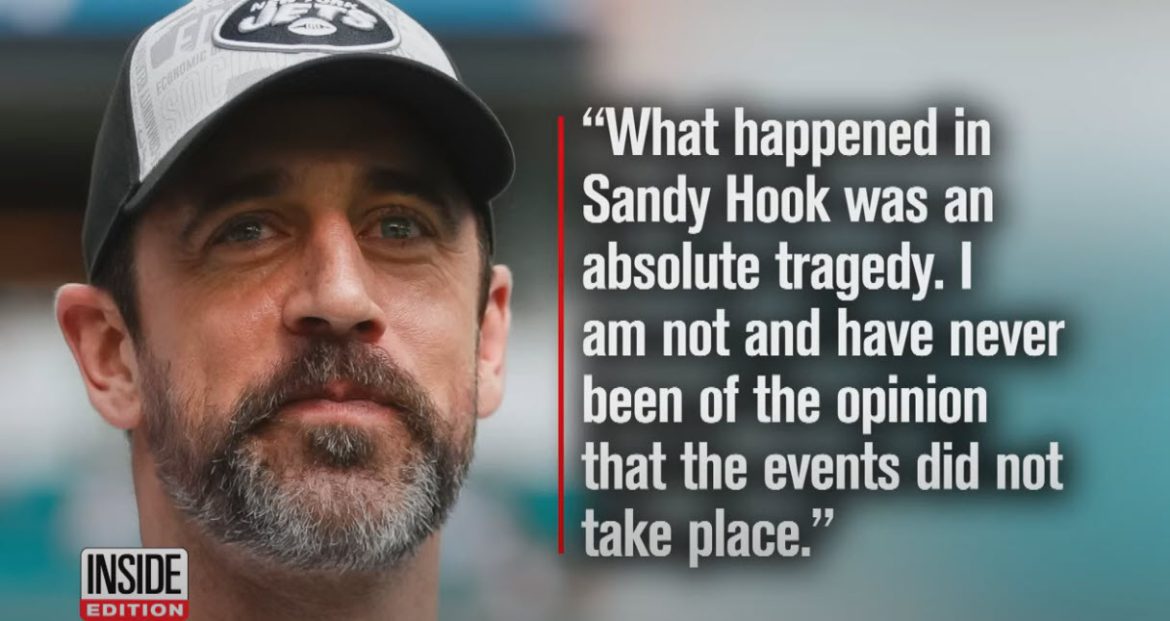In a recent development, New York Jets Quarterback Aaron Rodgers has vehemently denied allegations that he is a conspiracy theorist regarding the Sandy Hook shooting. The controversy arose following a report by CNN claiming that Rodgers had expressed doubts about the authenticity of the tragic event.
Rodgers took to social media platform “X” to address the accusations, stating unequivocally, “Sandy Hook was an absolute tragedy,” and emphasizing that he has never doubted the reality of the events that took place. The Sandy Hook shooting, which occurred in 2012 in Newtown, Connecticut, resulted in the tragic loss of 20 children and six adults at Sandy Hook Elementary School.
The quarterback’s response comes amidst a swirl of controversy and scrutiny, with many questioning his stance on conspiracy theories and his public statements regarding sensitive issues. Rodgers’ denial of the allegations aims to clarify his position and distance himself from any conspiracy-related narratives.
The Sandy Hook shooting remains a deeply tragic and sensitive topic, with the families of the victims and the community still grappling with the aftermath of the horrific event. Rodgers’ statement seeks to reaffirm his empathy and acknowledgment of the tragedy while dispelling any misconceptions about his beliefs.
As the situation continues to unfold, Rodgers’ response has sparked discussions about the responsibility of public figures in addressing controversial topics and the importance of factual accuracy in public discourse.



